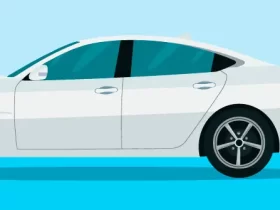Before buying any used car, many auto and finance-related things must be considered. Still, the following list focuses on specific items commonly found in vehicle descriptions of vehicular purchases made through mobile apps or third-party websites rather than at dealerships.
Before starting, be aware that it is much easier to negotiate the purchase price of a used car if you are physically present at the dealer. If possible, please go in person. Conversely, you can see what the vehicle looks like by clicking on the “view here” button on the dealer’s website.
- Photographs
It is essential to use your common sense here, but do not let this be the critical point in any decision-making process.
If something looks about the automobile too good to be true when you click on the “view here” button on the website, it probably is. Similarly, if something seems like it would take considerable work for someone else to make it look “perfect,” you might be able to negotiate a better price.
However, this is a rare occurrence, and if the price difference is small enough, it may be well worth it for you to buy something that looks nice.
- Mileage
Be suspicious of any used vehicle with extremely low mileage; this indicates either an unreliable or inefficient engine. Otherwise, the owner has not driven much at all. If it is the latter, find out their reason for buying such a car.
If it is because they cannot afford to drive much (which in itself would be a bad sign), then what was the reason for needing to buy such a cheap used vehicle in the first place?
Regardless of your decision to buy based on mileage alone, it may also be helpful to factor in the age of the vehicle since there are many other costs associated with car ownership that increase drastically with each passing year.
Each car model has a different prime driving range where owning it is the least expensive. This range changes based on things like available technology that can help improve fuel efficiency.
- Odometer Readings
Check mileage so that you can have some idea of how much previous drivers drove the car, but more importantly, check the odometer’s condition. If it reads “4”, is something obscuring a critical portion of the digit?
Is the picture blurry or taken from the wrong angle? Does it appear that another forged digit is in place? The odometer may not be faulty, so it is good to provide as much information as possible about the condition of the one in the photo.
- VIN
You can use the VIN to do a vehicle history report and pull up other records on that specific car (including recalls and service bulletins). If something seems off, you might be able to find out via the VIN.
- Vehicle Title
The title is a legal document that defines who owns the car and whether it has been in any accidents or declared a salvage/junk vehicle at any point in its history.
Suppose there was a severe accident, yet the seller neglected to mention it. In that case, it could be something they are hoping you won’t notice, or perhaps you can negotiate a better price if they are willing to bring the car into compliance (i.e., repair it).
The VIN could also show that the vehicle registration is in another state where cars are exempt from emissions testing, which would be illegal in this one; this alone should disqualify any prospective purchase.
- Negotiating the Price
Try not to wait till you are at the dealer before beginning negotiations. The time spent waiting for emails and texts back-and-forth will eat up your time, so try to negotiate as early as possible.
Also, remember that since you are about to spend quite a bit of money, it would be worthwhile for you to spend a few minutes on your phone doing things you usually do not have time for.
Many people may see this as frivolous or wasteful. Still, in most cases, it will be well worth the investment to take 5-10 minutes in online shopping to find the best price possible on any items you are about to buy.
If you find something cheaper elsewhere, you can let the dealer know via email, and perhaps if it is within a reasonable margin, they will match or beat the other price since you are ready to buy right now.
- Paperwork
The paperwork may seem tedious and annoying, but it comes with buying a car. There should be no surprises here. The dealer should take care of all documentation to transfer ownership before signing any papers.
Additionally, anything you should not bring up once becomes an issue (and if they refuse to budge on what appears to be a valid complaint, then you know there can never be good faith negotiations in the future).
If the dealer had some reason why they could not take the car in for an emissions test, or you feel that they were insulting your intelligence when asking for all of the paperwork, then it might be best to look elsewhere.
Wrapping Up
Hopefully, by following these tips for spotting a scam online, you will be able to avoid the most common pitfalls of buying used cars without visiting several different dealerships.










